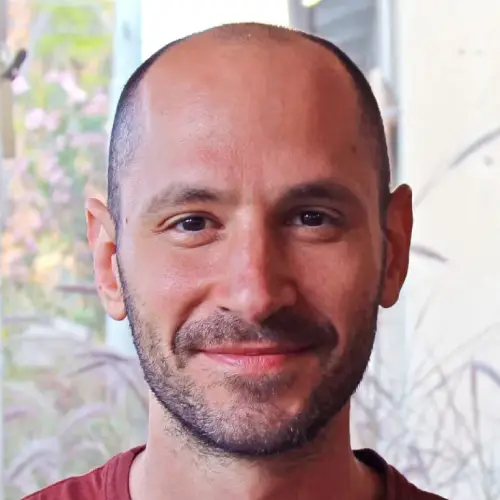Solve your problems before they even form by cultivating inner knowing. A person is not a thing but a process, and inner knowing is not something that happens in a point in time but it's an ongoing process, a way of living.
Our society is not anchored in truth. We as individuals grow up learning habits that hinder our development and our happiness. That's the deeper reason for the atrocities that we face.
The Trap of Thought-Identification
One of those habits that we learn is being identified with our thoughts, ideas, beliefs, opinions. We do that because it gives us a sense that we know who we are. People around us tend to respect us for having our own individual perspective, and we enjoy feeling respected, it reinforces the belief that we know who we are.
In practice, our thoughts are more like memories that point to who we were at the specific point when we chose to believe that thought. Who we really are is something that we can only find out (and decide, but that will be explained later) again and again in the moment.
Carrying those past opinions we identify ourselves with creates a False Self Image, which distorts our understanding of the world and leads to atrocities as mentioned before.
Tapping Into Your True Self
People have a way to tap into their true self. If you have ever felt like you know that something you read or heard is true, even though it's the first time you heard it you know that it's clearly true, as if you knew that all along and now you just got reminded of it, then you may have experienced just that.
Many thought leaders have spoken about this ability:
- Plato referred to it as the "divine spark" (nous)
- Rudolf Steiner described the sense of ego (sense of the "I")
- Eckhart Tolle, Goethe and others have also referred to this inner knowing
Tapping into this subtle inner knowing requires an old-new way of seeing the world and a change of habits. It requires understanding the real role of thinking in the human system, in turn, the identification with the mind dissipates, and a space is being cleared where more subtle forms of sensory input can appear and be recognized by our aware mind.
Living from Inner Knowing
The knowing of oneself is then facilitated by the habit of tapping into the inner-knowing prior to any decision / action / expression of ours, just as most people mistakenly do with our thoughts. This natural ability is habitual in us as small children until we surrender to the pressure of our parents and others to embrace what we're being told over what we sense from inside us.
As Mark Twain said, "Choose a job you love, and you will never have to work a day in your life." Many people nowadays are looking for a change, they want to make money from something that they enjoy and are fulfilled by, rather than enslaving themselves from 9 to 5 for most of their lives just to afford to experience some joy in between.
The Inner Compass Journey
The 'Inner Compass' 12-week program deals with that exact transition. While we tackle various concrete challenges, there is a deeper and subtler change that's happening, tapping into that sense of inner knowing.
Questions People Ask
What is inner knowing vs regular thinking?
Inner knowing feels like recognition, a quiet certainty that doesn't need to argue or prove itself. Regular thinking is the mental chatter that analyzes, compares, and often creates problems. Inner knowing arrives whole and complete; thinking assembles pieces and often misses the picture.
How do I stop identifying with my thoughts?
Start by noticing the gap between you (the observer) and your thoughts (what's being observed). Practice seeing thoughts as weather passing through your mind rather than who you are. Each time you catch yourself saying "I think," try replacing it with "A thought is appearing."
Why do we lose touch with inner knowing as adults?
As children, we naturally trust our inner sense. But through education, socialization, and the need for approval, we learn to value external validation over internal wisdom. We're rewarded for having the "right" opinions rather than authentic insights. The good news: this knowing never leaves, it just gets covered over.
Can inner knowing prevent problems before they form?
Yes. Most problems arise from acting against our inner truth or from the gap between who we are and who we pretend to be. When you consistently align with inner knowing, you make choices that prevent the conflicts, confusion, and suffering that come from living out of alignment. Problems dissolve before they solidify.
